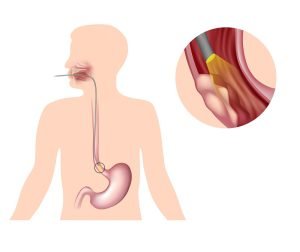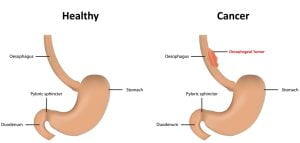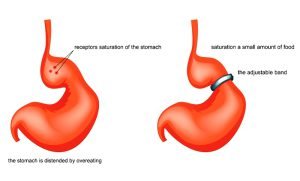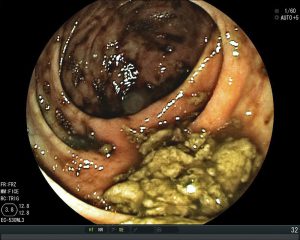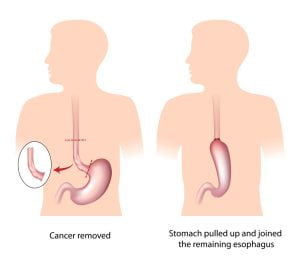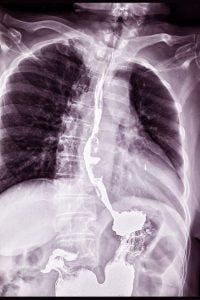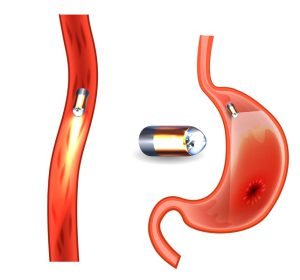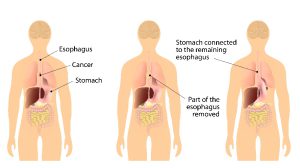Browsing: Esophageal Cancer Graphics
Comprehensive Information, Resources, and Support on Esophageal Cancer
Esophageal cancer is cancer that occurs in the esophagus — a long, hollow tube that extends from your throat to your stomach. Esophageal cancer starts in the cells that line inside the two layers of tissue (known as the mucosa and submucosa) of the esophagus and it can develop anywhere, upper, middle or lower base of the esophagus. The location depends to the tumor position.
Esophageal cancer is a disease in which malignant (cancer) cells develop in the tissues of the esophagus. The most common malignant tumor in the proximal two-third section of the esophagus is squamous cell carcinoma and adenocarcinoma is the most common in the distal one-third section.
While there is no defnitite evidence that weight loss surgeries cause cancer, it is found in some research that bariatric procedures such as gastric banding for weight loss may have post-operative gastroesophageal complications including esophageal adenocarcinoma.
Upper gastrointestinal endoscopy showing esophageal cancer in a patient.
As shown in the image, during the surgery, the stomach is pulled up and joined in the remaining section of esophagus after removal of the cancer. The surgery depends on the size and position of the tumor. In some cases, the affected part, of both, esophagus and stomach is removed while the remaining part, of both, is joined again. In other cases, only the affected part of the esophagus is removed. In very severe and rare cases, the entire esophagus is removed and the stomach is pulled up to the chest and reattached.
Imaging tests that are used to diagnose esophageal cancer include a chest x-ray and a double-contrast barium swallow. In a double-contrast barium swallow, the patient is asked to drink a solution that contains barium, which is a dense liquid that appears white on x-rays and helps in better visualization.
Capsule endoscopy is a procedure that uses a tiny wireless camera to take pictures of your digestive tract. This helps in diagnosis of GI problems such as esophageal cancer. Capsule endoscopy is preferred to evaluate the esophagus to look for abnormal, enlarged veins (varices). It is known as esophageal capsule endoscopy and is considered to be a feasible and safe procedure.
In the cancer surgery, the affected part of your oesophagus is removed and the healthy part is re-attached to the stomach, which the surgeon pulls up into the chest.
ADVERTISEMENT




